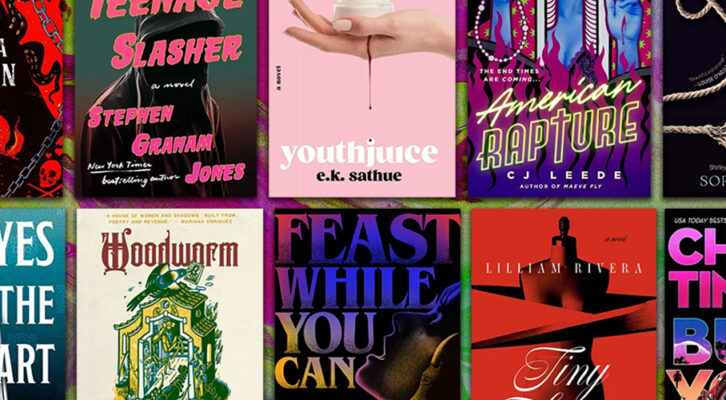Errol Morris on the Time He Filmed Donald Trump Missing the Point
Part Two of the Candidate Who Idolized Charles Foster Kane, Cinematic Monster
This two-part feature takes as its starting point a conversation between Errol Morris and Donald Trump, in which Trump discusses his favorite movie, Citizen Kane. Part 1 investigated the parallels between Trump’s rise and the fictional plot of Citizen Kane. Part 2 turns to Errol Morris for more answers.
What does Donald Trump’s love of Citizen Kane tell us about him? And what does it tell us about the state of our political discourse in 2016? I can think of no one better to answer these questions than Errol Morris, who interviewed Trump about Citizen Kane in the first place, back in 2002. That Morris also happens to be a connoisseur of self-deception—having directed films about a Holocaust denier (Mr. Death) and Donald Rumsfeld (The Unknown Known) among others—is a happy coincidence that makes him all the more qualified to untangle this knot.
Anthony Audi: I’ve been thinking a lot recently about your extraordinary exchange with Donald Trump, in which he talks about his love for Citizen Kane. What do you make of it now that he’s at the center of our politics?
Errol Morris: Well, there have been moments in my career where people have said things to me that raise all kinds of crazy questions about self awareness. To what extent is this person aware of himself? To what extent is this person aware of what he’s saying? And then there’s a whole set of additional questions. How could he not be aware of what he’s saying? How is this possible?
I have this concept based on possible revisions to the DSM V, the diagnostic manual for American psychiatry, and I was going to call it Irony Deficit Disorder: the absolute inability to appreciate irony on any level whatsoever, particularly when the irony involves oneself. Definitely a severe disorder. I would rank it well above paranoid schizophrenia, sociopathy and the like.
AA: Trump certainly seems to suffer from that disorder. What do you think he sees in Citizen Kane?
EM: Somehow he identifies clearly with Kane. Kane is Trump. And it’s not the kind of identification that I would make if I were Trump. Of course that issue—if I were Trump, what would I do, what would I think, what would I say?—it’s one of those counterfactuals I’m probably not equipped to address. But, if I were Donald Trump, I would not want to emphasize that connection with Kane. You know, a megalomaniac in love with power and crushing everything in his path. The inability to have friends, the inability to find love. The moral that Trump takes from Kane—I mean, it’s one of the great lines that I recorded. I ask, “Do you have any advice for Charles Foster Kane, sir?” You know, let’s get down to the psychiatric intervention. How can we help this poor man? He’s obviously troubled. How can we help him? Donald, help me out here!
And Donald says, “My advice to Charles Foster Kane is find another woman!” And you know, I thought, is that really the message that Welles was trying to convey? That Kane had made poor sexual choices, poor marriage choices?
AA: It’s an incredible line. And it makes you wonder what goes through Trump’s mind as he watches the movie. I still can’t wrap my head around if he just chooses to ignore its obvious moral undertone, or if he genuinely doesn’t see it.
EM: Well, that’s one of the great mysteries of self-deception. When Donald Rumsfeld says to me [in The Unknown Known, Morris’ documentary about him], “There you were in the Oval Office of the White House. There’s Gerald Ford, there’s you, there’s Henry Kissinger, et cetera, and we are pulling out of Vietnam. People are climbing onto helicopters.” And I ask: Do you feel we learned anything from the experience of Vietnam? And Donald—I guess the other Donald, Donald Rumsfeld—says to me, “Well, we learned that some things work out and some things don’t. And that didn’t.”
And the question that comes to my mind, actually at the time, and then certainly subsequently, is what is he saying to me? Is he just simply saying fuck you and I don’t really care to reflect on this or to answer the question? Or is he revealing the fact that there’s nothing there? Like the Wizard of Oz, you open the curtain and there’s just simply a little man, an imposter, standing there.
AA: It’s an inability to reflect on the damage he’s done…
EM: To reflect on anything! The inability to reflect. I’m Jewish, and I used to describe Rumsfeld to people as the least Jewish person I’d ever met: no guilt, no self-loathing, no remorse, no self-doubt, no nothing. Just a kind of glib self-satisfaction—which I see with Trump, by the way. A glib kind of narcissistic self-love, almost like he’s masturbating in public. And it’s kind of gross. I don’t know how else to describe it.
AA: So there’s a comparison to be made between Rumsfeld and Trump?
EM: I don’t like making facile comparisons, and probably there is really no true comparison to be made between the two, but there’s this illusion of depth where there really is none. When Trump talks about the film, he talks about how wealth can produce isolation, can produce loneliness. And he says, “I can understand that.” But he says it in a way to underline the fact that, “I am a wealthy and powerful man. I am like Charles Foster Kane in that respect. But this really hasn’t happened to me. This hasn’t happened to me because, first of all, if I have these kind of marriage problems, I just move on.”
And the problem that Charles Foster Kane is having is not because of a bad marriage choice. The problem is he’s an empty, hollow man, a simulacrum of a human being, a nothing, nowhere man who destroys the people around him, who’s incapable of love, incapable of compassion, incapable of self reflection, incapable of awareness of the world around him save that which suits his own slimy purposes of gathering wealth and power.
AA: What about Trump’s take on Rosebud?
EM: It’s fun to hear Trump talk about how Rosebud somehow works, the metaphor works, “I don’t know why it works, but it works. After all, Steven Spielberg paid a lot of money for it, so it must work. Paid a lot of money, maybe seven figures, six figures.”
So Rosebud works! But what is Rosebud? Well, Rosebud could be a lot of things for a lot of people. One of the beauties of metaphors is they can fulfill multiple purposes at the same time. Certainly Kane has this sad ineffable longing for a lost past. I would venture to say it’s also the search for something that has meaning or significance in a life that’s become meaningless, empty, devoid of significance.
AA: Does Trump get that?
EM: I would say that Trump sees nothing.
AA: And yet, while being blind to the reality of his own hollowness—blind to the message conveyed so clearly by Welles—while somehow missing all of that, Trump still manages to identify Citizen Kane as the movie that speaks most profoundly to his emptiness; the movie that best demonstrates the danger he poses to the world.
EM: You know, in Borges’ review of Citizen Kane, he cites Chesterton in “The Head of Caesar,” and it’s one of my very favorite quotes of all time. “There’s nothing more frightening than a labyrinth without a center.” An amazing phrase, which can mean so many things. He of course applies it to Kane. But it’s a world where there is no truth or falsity. For me, it’s a world of randomness, a world of chaos. A world of appearances with no substance. A world really, truly devoid of hope. And I find the review very powerful, actually truly meaningful, given when Citizen Kane first came out and what happened to the world. We forget how charged of a time that was. 1941.
AA: Are we in that kind of moment now?
EM: Like anybody that has half a mind, I feel that the republic is threatened, but this is a deeply internal threat. It’s not a threat from our enemies, from ISIS or ISIL or Al-Qaeda. You know, it’s an internal threat to what we stand for. (If we stand for anything, and I’m not so sure that we do anymore.) I often think about what I call fig leaf democracy. That we want to at least pay lip service to fairness, equality, even if it doesn’t exist, we want to pay lip service to it. We want to acknowledge that it’s a value that should be sought after, even if it can’t be attained. Equal opportunity, fairness, a level playing field for all. Even if it’s an illusory dream, we somehow think it’s part of our social compact, part of what defines us, that makes us who we are. That could also be some horrible self-deception or delusion.
I think the country is on the verge of becoming a disgrace. A disgrace to itself.
Maybe I sound severe, but to elect Trump is saying it’s okay to be self-deceived. It’s okay to say anything you want to say. It’s okay to sort of ignore reality and just make things up as you go along. It’s okay to be irrational, it’s okay to be any pernicious thing you want to be—racist, intolerant, duplicitous. Why not elect Diego as president? Or Richard III?




















